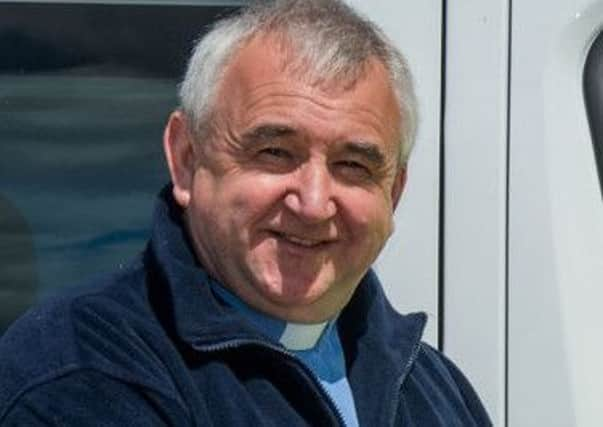Jeff Salway: Community mission aiming to break debt cycle


From the “financialisation” process described by John Kay in Other People’s Money to the inevitable side-effects of technological progress, there are myriad reasons why banks are abandoning the high street.
Where financial services have a presence on the high street these days it’s invariably in the form of cash converters, pawn brokers and payday lenders. They’re meeting a need, but all too often creating bigger problems and trapping customers in a cycle of debt.
Advertisement
Hide AdAdvertisement
Hide AdReverend Iain May had counted nine such establishments around Leith’s Great Junction Street and Newkirkgate when he decided it was time to act. May is minister of South Leith Parish Church, but he also spent years in the banking industry working for RBS and Allied Irish Bank before leaving the industry more than a decade ago.
That experience is now being put to good use through Castle Community Bank, of which May is a director. Formed from the merger of Castle Credit Union, North Edinburgh Credit Union and Water of Leith Study Group, it’s a social justice mission that aims to provide the community with an affordable alternative.
Castle is not-for-profit, has no shareholders, is fully owned by its members and vows to invest surplus funds in communities around Edinburgh. While it’s regulated as a credit union, the “community bank” branding reflects its directors’ belief in a need for banking services rooted in the community.
Credit unions are a vital counterweight to high street banks and some have thrived, not least the likes of Glasgow, Scotwest and Edinburgh’s Capital. But others have struggled and there remains a public perception of credit unions as the “poor person’s bank”.
The community bank brand overcomes that perception by broadening its appeal and doing what it says on the tin. Castle’s is the old-fashioned savings and loan model, with two branches in Edinburgh and possibly another in the relatively near future. Crucially, the bank also has an online presence.
The loan books of both Castle and North Edinburgh credit unions were shrinking. Like many credit unions they were paper-based and unable to compete with costly online lenders able to make quick lending decisions. Those loans might be extortionate, but for struggling borrowers they are instant, and that’s the selling point.
It’s about “breaking the cycle”, according to May – freeing people from the revolving door of high-cost credit by providing quick access to affordable loans with fair conditions and longer repayment terms.
To provide affordable loans you need to attract savings. But it’s not difficult to compete on savings when the mainstream banks are offering such meagre deals, especially when customers know their savings are being lent out into their own community.
Advertisement
Hide AdAdvertisement
Hide AdCastle only recently opened its doors, but its progress should be closely watched. Community banking has been slow to develop in the UK, yet there’s a clear demand for financial services that exist to serve customers for the long-term benefit of society, not to exploit them for their own short-term gain.